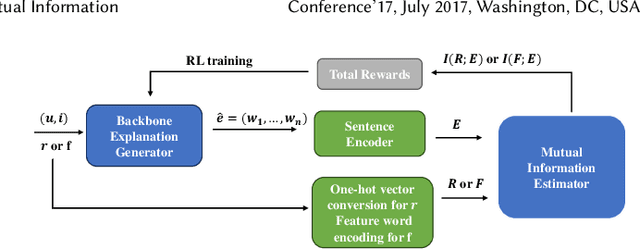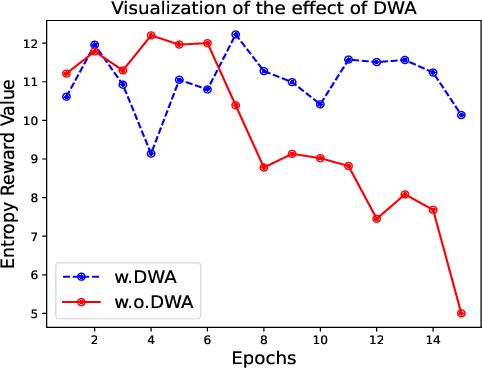Aligning Explanations for Recommendation with Rating and Feature via Maximizing Mutual Information
Paper and Code
Jul 18, 2024



Providing natural language-based explanations to justify recommendations helps to improve users' satisfaction and gain users' trust. However, as current explanation generation methods are commonly trained with an objective to mimic existing user reviews, the generated explanations are often not aligned with the predicted ratings or some important features of the recommended items, and thus, are suboptimal in helping users make informed decision on the recommendation platform. To tackle this problem, we propose a flexible model-agnostic method named MMI (Maximizing Mutual Information) framework to enhance the alignment between the generated natural language explanations and the predicted rating/important item features. Specifically, we propose to use mutual information (MI) as a measure for the alignment and train a neural MI estimator. Then, we treat a well-trained explanation generation model as the backbone model and further fine-tune it through reinforcement learning with guidance from the MI estimator, which rewards a generated explanation that is more aligned with the predicted rating or a pre-defined feature of the recommended item. Experiments on three datasets demonstrate that our MMI framework can boost different backbone models, enabling them to outperform existing baselines in terms of alignment with predicted ratings and item features. Additionally, user studies verify that MI-enhanced explanations indeed facilitate users' decisions and are favorable compared with other baselines due to their better alignment properties.
 Add to Chrome
Add to Chrome Add to Firefox
Add to Firefox Add to Edge
Add to Edge